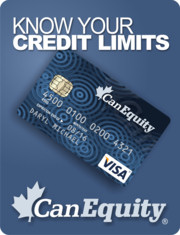Interest rates on borrowed money are high. When you cannot afford to pay off your credit card, or line of credit, debt every month, you are contributing to generating huge revenue for the creditor. This is how credit works. The lender knows that the average person who doesn’t pay off their balance owing, in full, each month will hold a balance for many months and years to come. Even if, every month, you make a greater payment than the minimum required, you can still be paying down the same credit card debt for 12 years or more because you are only minimally contributing to the principal amount of the money owed. The majority of your payment is an interest charge. Making the minimum payment maintains the lender with a solid income stream, sometimes over and above the money they lent to you.
Example: With a credit card balance of $5,000 the minimum monthly payment will be approximately $132 per month. It will take five years to pay off that balance and you will have paid roughly $3,000 dollars EXTRA in interest charges.
Some credit users become reliant on their credit to get by, and foster a sense of loyalty to the bank or institution that gave them “a chance” and administered them their first credit balance. Down the road, perhaps, they will seek this financial institution to obtain a car loan or a mortgage. Over the years the loyal consumer will generate thousands of dollars in interest for their creditor through these loans.
Attaining credit is relatively easy so long as you: are a post secondary student or are employed; have not recently declared bankruptcy; and have a valid Canadian Social Insurance Number. Being able to responsibly budget is, of course, not a prerequisite for the consumer being granted the credit. This is a shame. Because of this, many will pay unnecessary interest fees associated with their debts for the greater portion of their adult lives.

